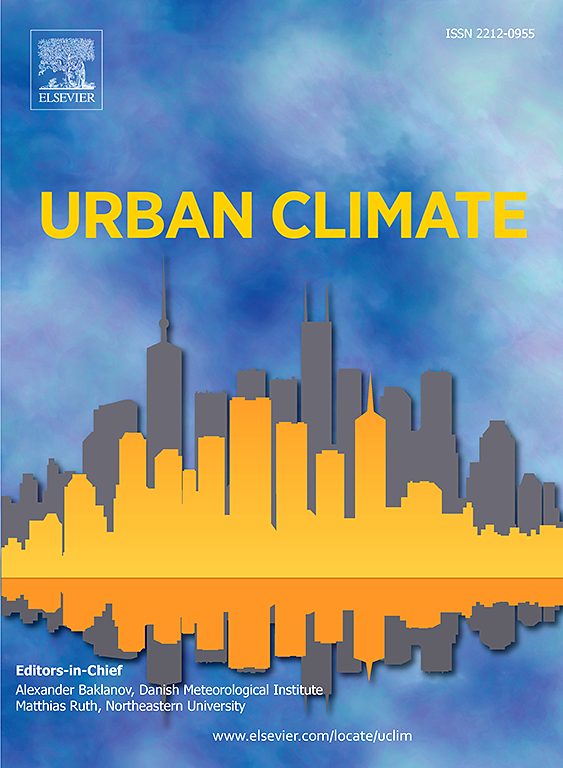Estimating the impacts of increasing temperatures and the efficacy of climate adaptation strategies in urban microclimates with deep learning
IF 6.9
2区 工程技术
Q1 ENVIRONMENTAL SCIENCES
引用次数: 0
Abstract
As urbanization and climate change progress, understanding and addressing urban heat becomes a priority for climate adaptation efforts. High temperatures concentrated in the urban core can drive increased risk of heat-related death and illness as well as increased energy demand for cooling. However, modeling the urban microclimate is an ongoing field of research typically burdened by an imprecise description of the built environment, incomplete observational records, significant computational cost, and a lack of high-resolution estimates of the impacts of increasing temperatures. Here, we present computationally efficient machine learning methods that can improve the accuracy of urban temperature estimates when compared to historical reanalysis data. These models are applied to a neighborhood in Los Angeles, and we compare the energy benefits of heat mitigation strategies to the impacts of climate change. We find that cooling demand is likely to increase substantially through midcentury, but engineered high-albedo surfaces could lessen this increase by more than 50 %. The corresponding increase in winter gas heating offsets the summer cooling benefit in the current climate, but total annual energy use from combined heating and cooling with electric heat pumps benefits from the engineered heat mitigation strategies under both current and future climates.
基于深度学习的温度升高对城市小气候的影响及气候适应策略的有效性评估
随着城市化和气候变化的推进,了解和解决城市热问题成为气候适应工作的优先事项。集中在城市核心的高温会增加与热有关的死亡和疾病的风险,并增加冷却的能源需求。然而,城市小气候建模是一个正在进行的研究领域,通常受到建筑环境描述不精确、观测记录不完整、计算成本高以及缺乏对温度升高影响的高分辨率估计的影响。在这里,我们提出了计算效率高的机器学习方法,与历史再分析数据相比,可以提高城市温度估计的准确性。这些模型应用于洛杉矶的一个社区,我们比较了热量缓解策略的能源效益与气候变化的影响。我们发现,到本世纪中叶,冷却需求可能会大幅增加,但工程设计的高反照率表面可以将这一增长减少50%以上。在当前气候条件下,冬季燃气供暖的相应增加抵消了夏季制冷的好处,但在当前和未来气候条件下,电热泵联合供暖和制冷的年总能源使用受益于工程减热策略。
本文章由计算机程序翻译,如有差异,请以英文原文为准。
求助全文
约1分钟内获得全文
求助全文
来源期刊

Urban Climate
Social Sciences-Urban Studies
CiteScore
9.70
自引率
9.40%
发文量
286
期刊介绍:
Urban Climate serves the scientific and decision making communities with the publication of research on theory, science and applications relevant to understanding urban climatic conditions and change in relation to their geography and to demographic, socioeconomic, institutional, technological and environmental dynamics and global change. Targeted towards both disciplinary and interdisciplinary audiences, this journal publishes original research papers, comprehensive review articles, book reviews, and short communications on topics including, but not limited to, the following:
Urban meteorology and climate[...]
Urban environmental pollution[...]
Adaptation to global change[...]
Urban economic and social issues[...]
Research Approaches[...]
 求助内容:
求助内容: 应助结果提醒方式:
应助结果提醒方式:


